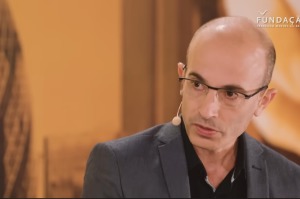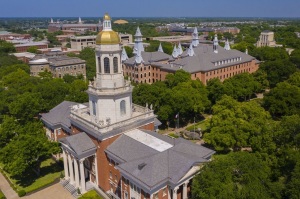How some Christians misunderstand what really matters in the Church

This past week megachurch pastor Rick Warren sent a tweet that said: “In Heaven, YOU will be a minority! Get used to it. Most Christ-followers in the world don’t look like you, think like you, or vote like you. They’re saved by grace thru faith, Jesus-lovers from every era of time & place. If diversity scares you, you’ll hate heaven. Rev. 5:9.”
While it’s not clear what this comment was prompted by, it’s a good example of what I am calling “divisive diversity rhetoric” and a great example of how Revelation 5 is often misused.
The first way this is divisive is that it implies that we know who will be a “minority” in Heaven. No one, to my knowledge, has any reliable data on the demographic composition of the Celestial City. God saves who He will. Yes, in Revelation 5:9 we are told that Jesus Christ “purchased for God persons from every tribe and language and people and nation” — but we aren’t given a percentile-based breakdown of this redeemed gathering.
Second, no one in Heaven is going to care about things like “being a minority” or a “majority.” Those are manmade terms and concepts, the “things of earth” that “will grow strangely dim in the light of His glory and grace.” The hope of Heaven isn’t that it’s going to be a super diverse gathering. No, the hope of Heaven is that we will all experience perfect, unceasing fellowship with our Triune Creator God.
Christians aren’t going to be gathered around the throne of God, glancing around at each other and trying to size up apparent ethnic allotments. Rather, we will all, in unified spirit and wonder, behold our God face-to-face. We will be worshipping Him with our glorified bodies, free from sin, sickness, and death, and praising Him for His goodness, love, and majesty forever.
The hope and focus of Heaven actually isn’t Revelation 5:9, its Revelation 21:3-4:
“And I heard a loud voice from the throne, saying, ‘Behold, the tabernacle of God is among men, and He will dwell among them, and they shall be His people, and God Himself will be among them, and He will wipe away every tear from their eyes; and there will no longer be any death; there will no longer be any mourning, or crying, or pain; the first things have passed away.’”
Third, and finally, here is another fatal flaw with Warren’s comments and this broader way of thinking. It’s as simple as this: Hell is a very diverse place, too.
This isn’t just a throwaway point. Along with tweets like Warren’s, I hear people say all the time, “I want my church to reflect Heaven more by being more diverse.” Okay, well, Hell is also diverse. In fact, Hell might be the most diverse place in existence. Consider the teaching of Jesus in Matthew 7:13-14:
“Enter by the narrow gate. For the gate is wide and the way is easy that leads to destruction, and those who enter by it are many. For the gate is narrow and the way is hard that leads to life, and those who find it are few.”
The hard reality is that Hell is every person’s default destination. This is because we are all born sinners, inheriting guilt from the shared father of all humankind, regardless of your race, the first man — Adam.
In Adam, all fall. All Europeans. All Asians. All Africans. Everybody.
Your race plays no part in your damnation — your sin does that. And your race plays no part in your salvation — your repentance and trust in Jesus Christ and belief in the Gospel does that.
So, I guess, if “diversity scares you” then you’re not going to like Hell either. See how silly that sounds?
It’s that point right there that exposes the biblical bankruptcy of Warren’s admonition. Diversity isn’t the point of Heaven. The pressing question of our final resting place is whether you are spending it with God as a member of His family in eternal joy, or whether you are suffering under God’s just judgment for your sin in eternal damnation.
I’m not the first to make this observation. Mark Dever, the senior pastor at Capitol Hill Baptist Church, has said something very similar. In fact, given the fact that I’ve listened to more sermons from Mark Dever than from any other preacher out there, I probably picked it up from him in the first place.
Preaching at Southeastern Baptist Theological Seminary, Mark said: “Diversity is very common in Hell. Diversity is not a uniquely Christian trait. Unity in diversity is what is unique to Christians — the unity we have in the Spirit.”
I want to make a qualification to Dever’s addition. Even non-Christians can have “unity in diversity” when they unite around shared affections, such as love for nation. Unity in diversity is not, in fact, an exclusive or unique Christian trait. But unity in Christ — now that’s uniquely Christian.
But what about here on earth? I’ve seen pastors argue that a more diverse church equals a more holy church. It’s funny, though, how such standards are never applied to Kenyan churches. Or I’ve heard it said that if a church is more diverse on earth, it looks more like Heaven. Consider the logical implications were such a statement true. It would mean that a faithful, Gospel-preaching church located in a 99% black community, say somewhere in Baltimore, doesn’t look much like Heaven. Does that mean it looks more like Hell? Of course not!
We must point out once more that it’s never the black churches, Hispanic churches, or Korean churches that these people have in mind when they lob these bombs. It’s just the majority white church in rural Ohio caught between their “look more like Heaven” crosshairs.
Because it’s not the diversity that makes a diverse church “look like Heaven.” It’s how the members of any local church treat each other (and non-Christians) that counts. For example, if you were to just physically survey a multi-ethnic congregation, in a snapshot, what does that picture tell you about how this diverse body loves one another, sacrificially gives and serves each other, pushes each other on to love Jesus more, and helps each other repent of sin? Nothing.
You might have the most diverse church in the world, but if that church is defined by division, slander, quarrels, and hate, it doesn’t look like Heaven at all.
This might sound shocking, but it’s true: There is nothing intrinsically valuable about diversity.
What matters is being humble, respectful, and willing to learn from others of different races and backgrounds, all while seeking and prioritizing objective and transcendent truth together.
Our culture is obsessed with a skin-deep diversity that demands cognitive conformity. We, of course, want unity on the confessional matters of orthodox Christian faith. But we don’t seek manufactured diversity. Rather we aim, per James 2:1-13, to “show no partiality.”
Hectoring faithful Christians about being a minority in Heaven isn’t helpful, it’s divisive. Telling mono-ethnic churches in mono-ethnic settings that they aren’t as holy as the multicultural church in downtown Manhattan isn’t loving, it’s divisive. This is “divisive diversity rhetoric,” and it needs to end.
Yes, God is gathering a people for Himself from every tribe, tongue, nation, and language. The Gospel will go to the ends of the earth. Christ the conquering King guarantees it. But it’s God who is doing this, not mankind.
Instead, Christians should strive to hold fast to the truth, both about what happens in our world, like in Ferguson, and what can be found in the pages of the Bible, like in Revelation.
Let’s get back to the truth. And by doing so, leave behind the last decade of divisive diversity rhetoric, grounded in unbiblical and illogical conceptions of what Heaven will look like. Our churches here on earth will be better — and more heavenly — for it.
Originally published at Standing for Freedom Center.
William Wolfe served as a senior official in the Trump administration, both as a deputy assistant secretary of defense at the Pentagon and a director of legislative affairs at the State Department. Prior to his service in the administration, Wolfe worked for Heritage Action for America, and as a congressional staffer for three different members of Congress, including the former Rep. Dave Brat. He has a B.A. in history from Covenant College, and is finishing his Masters of Divinity at The Southern Baptist Theological Seminary.
Follow William on Twitter at @William_E_Wolfe




























